by Ian Scoones and Andy Stirling, STEPS co-directors
2021 is the final year of the ESRC STEPS Centre. Established in 2006, but with an even longer backstory, we have come a long way. This blog post reflects on the journey, and looks forward to the future. As the formal version of the Centre at Sussex comes to an end, the people, ideas and networks will of course continue, as many seeds have been sown, allowing for multiple new beginnings as the STEPS legacy is sustained in new ways.
The story of the STEPS Centre is complex and involves many people. We cannot reflect on everything, so this is a very personal set of reflections, ones generated from our positions as co-directors of the Centre over 15 years. On our website there are many reports to our funders, and listings of outputs, but this reflection takes a different tack. A timeline of key events accompanies this (rather long) blog post, but again this is far from comprehensive.
Browse the timeline: A brief history of STEPS
Scroll along the timeline to discover key moments in the STEPS Centre’s story, with links to relevant material.
Others of course will have their own reflections, and we invite you to add these to the comments at the end of this blog post.
The story of such a multi-dimensional and complex Centre cannot easily be told, but here is our attempt. For the sake of clarity, we divide our account into five nominal periods, adapting Bruce Tuckman’s phases in the formation of groups. The Centre has always been very much a social being, one made up of people and their interactions, and it is from this collaborative, interactive process that the ideas that we have become known for have emerged.
Forming
The first phase can be described as ‘forming’, and has a significant pre-history. The idea for a Centre emerged in the heady days of renewed enthusiasm for environment and development issues in the late 1990s, after the 1992 UN Conference in Rio. Sustainability was high on the agenda, but was often instrumentalised and narrow, a view reinforced by the disappointments around the Johannesburg follow-up in 2002.
In the late 1990s, a group of us from IDS and SPRU at Sussex (including Frans Berkhout) got together and put together a bid for an ESRC Centre. We sadly weren’t successful; some suspected that we were too young, and existing incumbents were clearly still in charge! Not deterred we joined forces as co-directors of the final phase of the ESRC’s Global Environmental Change programme, and ran a series of major policy dialogue and dissemination events, showcasing the array of amazing work undertaken by the emerging field of environmental social science.
By 2000 when the GEC programme closed, we were increasingly convinced of the importance of a critical debate on environment and sustainability, informed by the diverse perspectives and experiences coming from development studies (IDS) and science policy research (SPRU). A few years later, we again came together and put in an ESRC Centre bid. And this time, success! With Melissa Leach, we became a triumvirate of co-directors across IDS and SPRU.
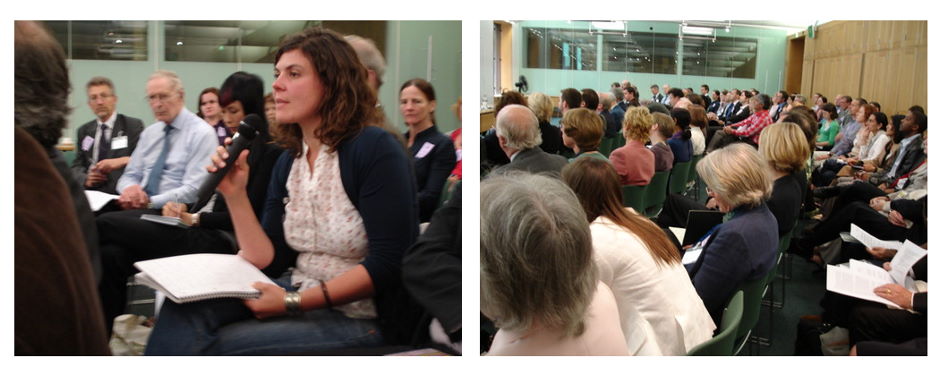
We started in 2006, but got going properly in 2007 when the teams across the two institutes formed, many of whom did not know each other yet. Understanding where we came from – intellectually, politically and practically – was important. The Centre was organised in a matrix structure, with different domains (then food/agriculture, health/disease and water/sanitation) and themes (then dynamics, governance and designs).
We set about to explore each of these domains and themes in groups that combined IDS and SPRU researchers, together with international collaborators when they were around. A series of seven Working Papers were produced, which formed the initial intellectual foundation of the Centre. While the papers were sometimes a bit ragged around the edges, it was the process that went into their production that was the most important element.
At the same time as this flurry of activity, involving about 30 people in all, we established what became perhaps the most crucial part of the operation: our communications and engagement capacity. Recruiting the brilliant Julia Day and later the just-as-brilliant Nathan Oxley and later on Suzanne Fisher-Murray was key. Soon, not only did we soon have a great logo and an exciting if rather empty website, we had established at the core an amazing team, ably supported by Harriet Dudley (then Le Bris) and of course later Becky Ayre. Having an identity, building a network, engaging across institutions and reaching out to policy was crucial. And has remained so. A Centre must always be more than the sum of its parts, and having a professional team at the centre holding it all together is vital.
We also benefited massively from our Advisory Committee, initially chaired by Judi Wakhungu. With members spanning academia, business, journalism and policymaking, the guidance we have received from many successive committees, later chaired by Mike Hulme, has been absolutely invaluable.
Storming
With the concept of ‘pathways’ emerging through our collaborative writing process, we then launched into our project work. The aim was to test out these ideas in different places, with partners. We recruited two postdocs – Sally Brooks and Pritpal Randhawa – and together with faculty again across IDS and SPRU, we established two major projects.
One was on food and agriculture in Kenya (what became called the Maize project – but it was much more than that!), led from Sussex by Erik Millstone and John Thompson. The other was on water and waste in India, what became the peri-urban project, co-convened from Sussex by Fiona Marshall and Lyla Mehta.
The water and sanitation domain, led by Lyla Mehta, in turn developed work around ‘liquid dynamics’, an interdisciplinary exploration of the socio-ecological dynamics around water justice, and more.
This could be characterised as the ‘storming’ phase – with lots of ideas flying and different activities happening.
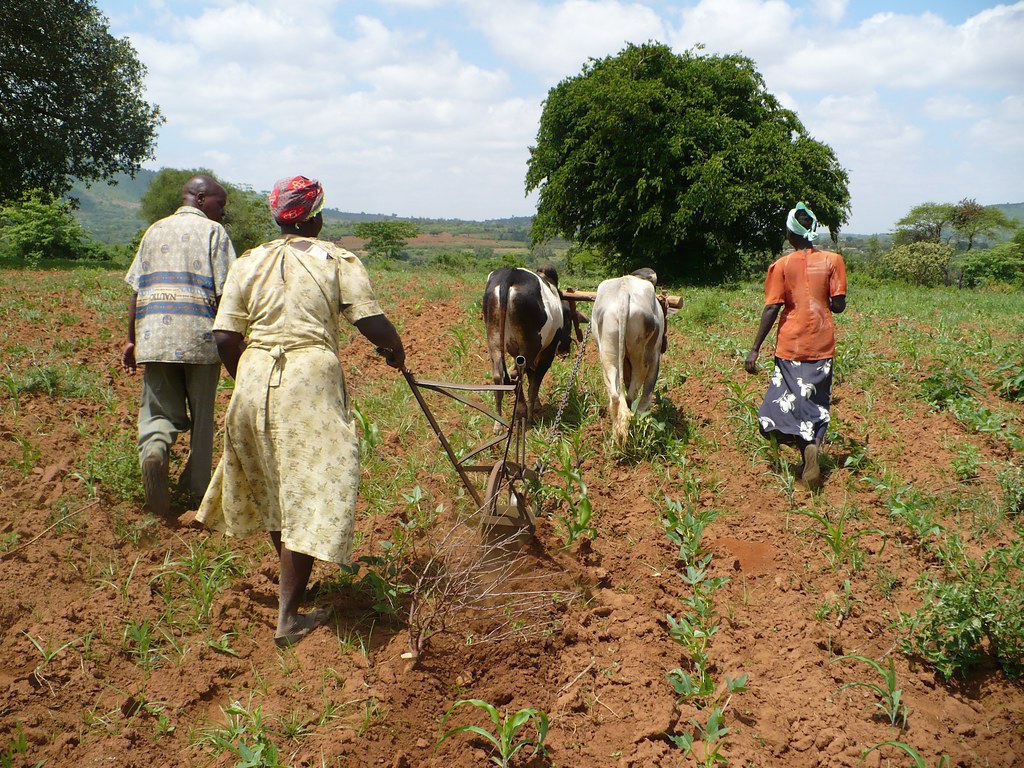
Over time, the deep and sustained collaborations that emerged around our research domains and these initial projects – with JNU colleagues in India and with ACTS and others in Kenya – became central to the evolution of the Centre.
The two flagship field-based projects were complemented by others, including a set on health and disease, which linked to on-going work on animal health and avian influenza, and extended this to look at wider questions of epidemics and ‘outbreak narratives’, as well as links to wider ‘health systems’ through the work of Gerry Bloom and colleagues.
Again – and we didn’t know it then – this work was formative in much wider social science engagement first with swine flu (in 2009), then Ebola (from 2014) and of course Covid-19 today. It is another example of how setting in train a line of work that may not seem that central in policy circles at the time can, a decade or more on, find a place at the centre of global discussions, but have a solid decade-long set of research to inform interventions.
In this phase, the Centre was producing a lot of research, with the Working Paper series growing rapidly, alongside a proliferation of articles, briefings, blog posts, videos and more. Our annual conferences provided an important point to come together with other colleagues, and we had important debates on concepts (such as resilience), on themes (such as urbanisation) and on cross-cutting issues (such as science and policy). In parallel, our wider networks and partnerships both expanded and consolidated.
As ideas were debated and empirical cases elaborated, the pathways approach was beginning to take shape, beyond the rather limited proposition in our Centre proposal. And with this, and most crucially, it was becoming more tangible through projects on the ground and with engagement with research partners and policy processes in diverse settings. In addition to our core projects, others emerged too, including work on biosafety regulation, climate change and cities, among others.
Norming
As the Centre matured and work expanded, our first attempt at pulling themes together was the 2010 book, Dynamic Sustainabilities: Technology, Environment, Social Justice. This was the first book in our ‘Pathways to Sustainability’ series (now numbering over 20), first launched with Earthscan and later continued with Routledge. Here in full book length form was an exploration of the various dimensions of the pathways approach, elaborated through examples from our project work. This was our ‘norming’ phase, when we became more confident in our ideas and the Centre as an organisation.
Also in 2010, we launched Innovation, Sustainability, Development: A New Manifesto, a 40-year follow up to the famous Sussex Manifesto of 1970. Facilitated by Adrian Ely, the manifesto process drew on our expanding global network, aiming to explore together, from very diverse settings, the implications of linking innovation, sustainability and development. The 3Ds emerged – direction, distribution and diversity – as reminders of what a pathways approach meant, embedded always in democratic struggle. The Manifesto – and the huge online resource generated was launched in London, appropriately at the Royal Society.

With these two major efforts and outputs, the Centre had in some sense arrived. We had both a (hopefully) readable but academic presentation of the intellectual agenda, and a policy oriented practical manifesto around change. But our work of course was not done. We successfully applied for a second phase of ESRC funding, and by this stage were mobilising a range of other co-funded projects that became allied to the Centre. By 2017, we estimated that a total of £35 million had been raised as co-funding to complement the core funding from the ESRC. Of course the core funding was key, as this was the resource that held all the growing, multiple parts together, paid for the impact, communications, and engagement (ICE) unit, and allowed STEPS members to write, make connections and take up initiatives like the Manifesto project.
The proliferation of projects, the expanded funding base and the sheer volume of outputs being produced put strains on all of us in this phase. In phase 2, we also expanded the scope of work to include another domain – long seen as important, but by this stage needing a special focus – climate and energy, and with this new people and firmer links with the Sussex Energy Group at SPRU, via Rob Byrne and Dave Ockwell. In addition, other projects blossomed, bringing in wider debates around political ecology (linked to thinking about carbon projects in Africa), the water-energy nexus (focusing on dams in Asia), grassroots innovation processes (from Europe to Latin America to India), uncertainty and climate change (in India) and much, much more.
Learning from all this experience became an important part of this phase of work, hence the addition of ‘impact’ to the mandate of the communications team. The development of a light touch version of the ‘participatory impact pathways approach’ (PIPA) became a crucial tool for our reflection and learning on project success (and failures or disappointments), and of course in the increasingly demanding funding environment allowed us to report plentiful impacts of all sorts, much to the ESRC’s delight.
Performing
From around 2014-15, we began to consolidate further, as the Centre gained a serious momentum. There were several important initiatives in this period that really demonstrated that at last we were really performing as a Centre. As recognised by long-term ESRC funding support for Centres, it takes time.
The first initiative, and perhaps the most important in recasting the shape and direction of the Centre, was the establishment of the STEPS Global Consortium. Long-running debates internally and with our fantastic Advisory Committee about de-centring the Centre came to fruition. Based on long-term partnerships stretching back to the origins of the Centre and before were brought together, with ‘hubs’ across four continents in Argentina (CENIT), China (BNU), India (JNU), Kenya (ACTS), Mexico/USA (UNAM/ASU) and Sweden (SRC), with Sussex remaining the host of the ‘secretariat’. Our ambition was that this grouping was to become the go-to network in debates about the politics of sustainability in the build-up to the Rio+20 conference and beyond into the SDG era.
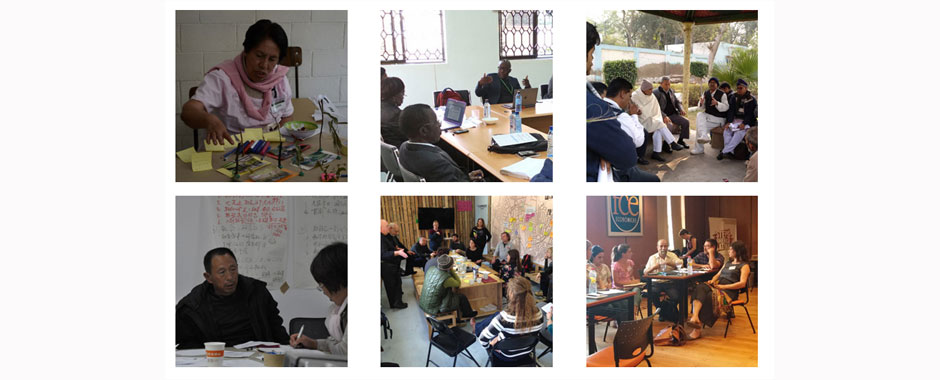
Second, the ‘Pathways Network’ – with support from the then International Social Science Council was established to link the hubs, working in pairs on different themes (food and agriculture, low carbon transformations and water resources, among others) to explore ‘transformations to sustainability’. Linking practical cases to wider debates about transformation, the project provided the laboratory for experimentation with STEPS ideas and their grounding (and of course adaptation and change) in different contexts, as well as experimentation with transdisciplinary methodologies. Co-leadership of the project between Sussex and CENIT in Argentina signalled a shift in working approach too.
Third, in 2012 we held the first of what will this year be nine STEPS Summer Schools. An annual two weeks at Sussex in May of intensive engagement with up to 40 PhD students and recent post-docs from every corner of the world has been perhaps the most exhilarating (and exhausting) aspect of STEPS’ activities over the 15 years. Not only was this a wonderful opportunity to share STEPS concepts, methods and case studies, but to have them critiqued, extended and taken up by such amazing participants was a real privilege for those of us who ‘taught’ (actually learned) on the courses.
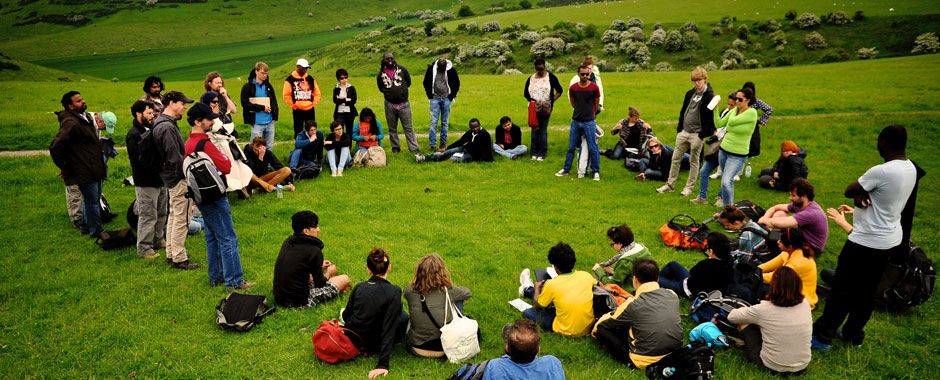
Again, core funding from the ESRC was vital for this, as we could not have initiated it without, nor supported participants from the Global South. Increasingly the Summer School became a venue for the next generation of partners in the hubs to meet and exchange, building the wider network across the Consortium. And with a formalised alumni network, now numbering over 400, the opportunities for networking expanded. The Summer School in turn has been the moment for our annual lecture series and the basis for our popular online course, as well as a source of inspiration for our growing methods portal, applying the pathways approach through many examples.
In this period too, remembering the origins of the Centre and the need to consolidate, synthesise and move forward, we initiated a number of activities that helped sustain our centre of gravity, always extending and expanding our ideas around the pathways approach. One such effort was our Sussex-based reflection on what became the co-edited book The Politics of Green Transformations. Concerned about the narrowing of the debate about sustainability (once again) around instrumental approaches of ‘transition’ and ‘green economy’, we set about reflecting on what a politics of sustainability should look like. This injected new rigour and enthusiasm into our wider debates, moving debates about pathways onwards further into discussions of transformation and the intersections with the political economy of capitalism.
Endings and new beginnings
In the period from 2016, after ten years of amazing support, our funding from ESRC changed into a bridging/transition mode, with considerably less funding now focused mostly on core functions. At this point, we renewed the leadership team at Sussex and developed plans for transition, as well as putting more emphasis on the Centre as part of a wider network and Consortium. Our aim was to change, but not to disappear.
However, our (multiple and frustrating) attempts to raise funds did not deliver, despite mammoth efforts. We failed at the last hurdle with a new Centre bid and conversations with various funding agencies were also in the end disappointing. Equally, our respective hosts at Sussex were unable to raise institutional funds for the continuation of the Centre as had been the aim. It seemed that funders and institutional leaders want new things to support, and investing in a Centre that was already performing and having major success was somehow less appealing. Some of this is understandable, as renewal and change are always important, but sometimes rivalries, competition and lack of vision sadly also have a role. While disappointing in some ways, we have accepted that all good things must come to an end, and making use of the amazing STEPS legacy as the springboard, we have begun to imagine new beginnings too.
Looking back across the work of the Centre, we identified four themes to focus on in our final years. The Transformations year in 2018 focused on transformations in relation to the challenges of authoritarian populism, and the implications for rethinking emancipatory politics towards sustainability. Also, together with Consortium partners, the year helped consolidate the ‘pathways network’ project, and has led to an important book too.
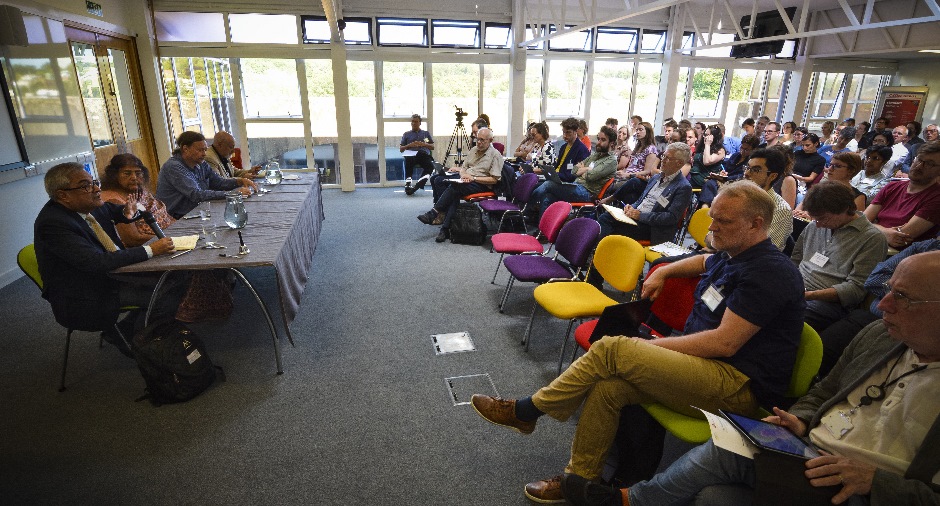
The Uncertainty year picked up on a central theme of STEPS work from the beginning, but we wanted to have a wider conversation with others engaged with uncertainty in fields ranging from banking and finance to critical infrastructures to crime and security to religion (and many more). Little did we know at the 2019 symposium that 2020 would be the dominated by the coronavirus pandemic, when uncertainties pervaded everyone’s lives across the world. Publishing a book on the politics of uncertainty could not have been better timed!
Picking up on our highly-successful ‘resource politics’ conference of 2015 and a number of projects during the bridging year, our plans for the Natures year in 2020 were severely disrupted by the pandemic. The intention to host the major POLLEN conference on political ecology in Brighton had to be rethought. What emerged though was something we would never have attempted otherwise, but turned out amazingly thanks to the work of Amber Huff and Becky Ayre in particular. With 1000 participants at different points, 200 odd sessions and discussions online involving researchers from every corner of the globe, the results have been amazing, and provided a great opportunity for STEPS to link more firmly with our long-term engagement with critical political ecology.
Our final year, starting now, will focus on Methods – or rather more broadly methodologies for thinking about the politics of pathways to sustainability. Many of the strands of the STEPS Centre’s contributions come together around methodology – opening up and broadening out debates and policy options, working across multiple knowledges, linking knowledge and action in transformative change, challenging historically-embedded, racialized and other assumptions. And much more. Watch out this year for an amazing set of discussions, appropriately convened by our Consortium partners in Kenya and Mexico and facilitated by Marina Apgar and Rose Cairns.
In many ways, we hope that the methods year will enact our vision for the future. Rooting ideas in new networks – including the Africa Research and Impact Network and the South Asia Sustainability Hub & Knowledge Network – that have emerged from STEPS connections, and allowing the Consortium hubs, with and without links with Sussex, to take the work forward, making it their own, rooting it in local contexts and struggles. In the final year we are also working with Umbela Transformaciones Sostenibles, a new initiative set up in Mexico to explore and create new ways of understanding the world to tackle social-ecological problems or challenges.
Our final Summer School, which may yet have to be online, will be an opportunity to connect once again with early career researchers, eager to take ideas forward in their own studies, activist engagement or policy work.
And our work to curate the STEPS legacy for future generations of scholars and activists, with an archived website, will provide a window on an exciting period for all of us, which will continue in different ways towards new beginnings and different initiatives in the struggle towards new, diverse pathways to sustainability.
If you have interacted with the STEPS Centre over the last 15 years, please feel free to leave your comments below – we’d love to hear your thoughts.

This is surprising news, as one would not imagine that such a vital research center would have an end when the spread of its work has reached beyond its imagined boundaries. It seems more like a metamorphosis than an end to emptiness. Various ideas, such as those of transformations, dynamism, pathways, emancipatory politics, transdiscipline, and many more worked within STEPS have already set up a fertile ground for further active research. It seems like a positive uncertainty is in place, in which diverse pathways have its own inertia and would give a degree of continuation to the amazing collaborative work that STEPS has pushed forward. As a PhD student at IDS I cannot but thank you all for the effort to keep a critical and reflective academic and intellectual work. Looking forward to engage with what comes this year, here in Mexico or in the virtual world. Congratulations!
Thank you for your kind words, Mateo!
What a short summary of a very long list of accomplishments of STEPS Centre — 15 years of a brilliant history readable in 15 minutes! It’s a very-happy-at-the-same-time-very-sad reading. I could not think of any comparable centre in the world with comparable financial resources that could come close to STEPS Centre in terms of overall impact in the academic, policy and activist circles. It’s definitely not just about the volume of output in terms of research, publications, and training (which is truly exceptional), but more importantly the quality of such intervention. Many of the publications were trailblazers and pacesetters in the field – they challenged, provoked and inspired subsequent research – and researchers. How they have done such incredibly high volume-highest quality output within a very short period of time is perhaps partly explained by the approach to work that they have embraced and developed – ‘engaged research’ that is truly diverse and global. It’s not just an elite detachment somewhere in Brighton; rather it tends to be one of the key hubs of a far more polycentric global community of engage researchers, with heavy presence in the Global South – no doubt a conscious design and method of work by people behind the centre… The Centre and its many brilliant publications, and how they work, have been a critical intellectual-political compass for me for the past 15 years. The massive impact of the 15 year old STEPS Centre – big and small, academic and non-academic – will be impossible to measure. But one thing is certain: it has contributed very significantly to changing not only the boundary of knowledge in the field, but the very convention on how brilliant work could be, ought to be, done. These are all happy stuff to think about when thinking of STEPS Centre. That makes it so sad to realize that 2021 is its final year. Very sad.#
Congratulations the lot of you, for crafting such a great academic ride. You’ve managed fabulous programs and great publications , all the while not forgetting to have fun ! Its been a wonderful association with you all and I wish each of you marvelous things going forward
Thanks for this reflection and congratulations to everyone at STEPS for such pathfinding work over the years. I am very sorry the Centre is not continuing and feel this is a sad reflection on funders’ priorities. However, it is great that such an impressive legacy has been established and that the work of STEPS will live on in so many networks and projects worldwide. All the best to everyone for all you do next.
Ian Christie, University of Surrey.